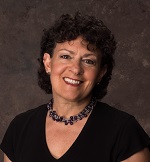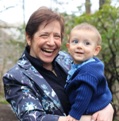In 1996, Harris Cooper of Duke University and his colleagues first reported[1] on the effects of what came to be known as summer slide, or summer slump. Over the summer months, when children are not in school, those from under-resourced communities tend to lose roughly 30 percent of the gains they made in math during the school year and roughly 20 percent of the gains in reading. More recently, Johns Hopkins researchers found that during the school year, students from underserved areas in Baltimore generally kept up academically with those from more privileged neighborhoods[2]. The loss was thus unique to the time outside of school.
For the past six weeks (and counting), over 1.5 billion children around the world, or 9 in 10[3], have been quarantined at home. In the United States alone an estimated 45.1 million children are out of school[4], and by definition, this refers only to those who are in primary or secondary school--not to those in child care or preschool.
If the summer slump affects students in just two months, what impact might the COVID-19 slump have on children who are missing as much as six or more months of schooling? Indeed, the current COVID-19 crisis poses many of the same hurdles we witness over the summer. Now, add job insecurity, dwindling reserves, cramped homes, and homework that can make parents feel insecure about their ability to help--when they can get their children to do it. Further, though teachers and schools are engaged in a herculean effort to bring the "normal" class schedules into the living room, these same teachers were literally thrust into online teaching without preparation. Few, if any, teacher training programs offer courses in maximizing online instruction for children in second grade.
One important difference between the COVID-19 slump and summer slump is the fragile state of the world and the fear that permeates our everyday activities--buying food, going to work, and just walking down the street present formidable challenges. And fear leads to stress, which sometimes can be toxic. The long-term impact of stress[5] on our bodies and brains is well documented, and neuroscientists are uncovering the specific mechanisms at play that affect specific areas of our brain, including the amygdala[6]. Located at the center of our brain, the amygdala flags information for long-term memory. Whether we sense threat or safety largely determines where information is routed--to the lower parts of our brain where impulse and instinct drive reaction or to the prefrontal cortex for higher order processing. Because of this, children retain more information when they experience positive and safe environments. In contrast, a study with first graders[7] links stress in a classroom environment with learning problems, including difficulties with task persistence and attentiveness.
The COVID-19 slump is also unique because teachers and students have been thrown into a big distance-learning experiment--in some cases in a matter of days or weeks. An entire education system that relies on face-to-face interaction and teacher-student relationships has suddenly been turned into an at-home virtual instruction model where many students know more about the technology platforms being used than the teachers or their parents. Studies of online learning for K-12 schools[8] suggest that students learn less in distance learning compared to peers attending traditional public schools. And for the most part, the studies on online learning have been conducted in the context of higher education rather than in primary or secondary schools. The data there, however[9], concentrates mostly on retention of students and is almost all qualitative in nature. This is to say that the odds were stacked against teachers before this large natural experiment even began.
The upshot of these additional stressors would suggest that the COVID-19 slump might have even more impact on children from under-resourced homes than does the summer slump. What can we do to offset the loss? In a recent Brookings blog[10], Douglas Harris suggests that school districts should focus on making up the lost time by sending students to summer school. This approach has a number of advantages, including giving teachers the opportunity to work over the summer, but for many states, it doesn't seem likely that it will be safe for children and teachers to return to school this summer.
There is the possibility that teachers will simply have to adjust some of the core standards so that they can review--or in this case teach de novo--what would have been covered in earlier grades. That process should begin now. And there is some talk about students repeating a grade, which would offset the loss and prepare them for their next challenges.
If schools do reopen in the fall--an open question--we will have to be ready to remediate the consequences of the COVID-19 slump, as it will surely have a greater impact than what we have witnessed during the two months of summer. Whichever routes ultimately make up for the lost school time, shuttered schools moving forward is a big issue that educators and parents must address in the immediate future.
Acknowledgement
As first appeared in EDUCATION PLUS DEVELOPMENT of the Brookings Institution as 'Avoiding the COVID-19 slump: Making up for lost school time' on April 30, 2020. Reprinted with permission from the authors.
- Cooper, Harris, Barbara Nye, Kelly Charlton, James Lindsay, and Scott Greathouse. "The Effects of Summer Vacation on Achievement Test Scores: A Narrative and Meta-Analytic Review." Review of Educational Research 66, no. 3 (September 1996): 227-68. https://doi.org/10.3102/00346543066003227.
- Popkin, G. KARL ALEXANDER'S DECADES-LONG STUDY SHOWS THE LONG SHADOW OF A POOR START. John Hopkins Magazine, Winter 2014. https://hub.jhu.edu/magazine/2014/winter/long-shadow-karl-alexander/
- Kamenetz, A. 9 Out Of 10 Children Are Out Of School Worldwide. What Now?. NPR, April 2, 2020.
https://www.npr.org/2020/04/02/824964864/nine-out-of-10-of-the-world-s-children-are-out-of-school-what-now - Map: Coronavirus and School Closures in 2019-2020. Education Week, March 6, 2020.
https://www.edweek.org/ew/section/multimedia/map-coronavirus-and-school-closures.html - Doom, J. R., & Gunnar, M. R. (2013). Stress physiology and developmental psychopathology: past, present, and future. Development and psychopathology, 25(4 Pt 2), 1359-1373. https://doi.org/10.1017/S0954579413000667
- Tottenham, N., Hare, T. A., Millner, A., Gilhooly, T., Zevin, J. D., & Casey, B. J. (2011). Elevated amygdala response to faces following early deprivation. Developmental science, 14(2), 190-204. https://doi.org/10.1111/j.1467-7687.2010.00971.x
- Milkie, M. A., & Warner, C. H. (2011). Classroom Learning Environments and the Mental Health of First Grade Children. Journal of Health and Social Behavior, 52(1), 4-22.https://doi.org/10.1177/0022146510394952
- Ahn, J., & McEachin, A. (2017). Student Enrollment Patterns and Achievement in Ohio's Online Charter Schools. Educational Researcher, 46(1), 44-57. https://doi.org/10.3102/0013189X17692999
- Zhua, M., Sariac, A., Miyoung Lee, M., A systematic review of research methods and topics of the empirical MOOC literature (2014-2016). The Internet and Higher Education, 37(4), 2018, 31-39.https://doi.org/10.1016/j.iheduc.2018.01.002
- Harris, D.N., Using federal stimulus to get schools through the coronavirus crisis: The case for summer school and summer teacher pay. Brown Center Chalkboard, March 11, 2020. Brookings Institution.
https://www.brookings.edu/blog/brown-center-chalkboard/2020/03/11/using-federal-stimulus-to-get-schools-through-the-coronavirus-crisis-the-case-for-summer-school-and-summer-teacher-pay/



 Roberta Golinkoff
Roberta Golinkoff Helen Shwe Hadani
Helen Shwe Hadani Kathryn Hirsh-Pasek
Kathryn Hirsh-Pasek










